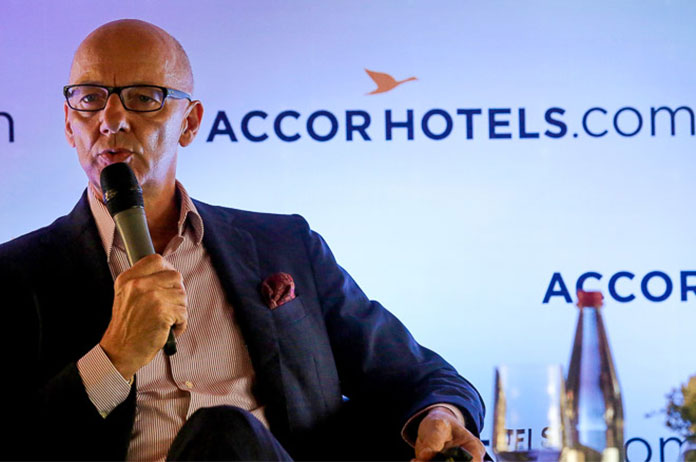AccorHotels Plans 3 New Mid-range Hotels

AccorHotels, a French multinational hotel group, plans to open new branches of its famous chained-brand hotels in Cambodia, as it moves to seize opportunities in a sector that is set to continue to expand in spectacular fashion with the number of foreign visitors markedly on the rise.
Three new hotels – two Novotel and one ibis Styles – are expected to come online by the end of 2018, said Patrick Basset, AccorHotels’ COO for Upper Southeast and Northeast Asia. The Novotel hotels, which are under construction, are located in Phnom Penh and Sihanoukville, while the ibis Styles will be raised in Siem Reap province. The new hotels seek to fill demand for more affordable accommodation, with AccorHotels already covering the luxury market with its brands Raffles and Sofitel, which are already present in Phnom Penh and Siem Reap. “Raffle and Sofitel are luxury hotels, but the upcoming resorts are more economic,” Mr Basset said. “We want to increase our offer of rooms, from luxury to more modern and affordable rooms.”
“We are confident the hospitality and hotel industry will continue to grow in Cambodia. Flight traffic is increasing remarkably in the kingdom, and with more tourists the need for more hotels is evident,” Mr Basset said, adding that enhanced investment from China into the country, and ongoing Asean integration are some of the other factors that have prompted the company to increase its stake in the kingdom. AccorHotels runs thousands of hospitality properties across 95 different countries, and already operates four luxury hotels in Cambodia – for a total of 735 rooms – under the Raffles and Sofitel brands. The new hotels will supply the local market with 600 mid-range rooms.
Chhay Sivlin, president of the Cambodia Association of Travel Agents (CATA), said this massive new investment in the country’s hospitality industry reflects healthy growth in the local tourism market, but warned that there is a dearth of skills in the market to service visitors. “There are a number of world-class investors in the country. Their presence is helping the sector advance,” Ms Sivlin said. However, human resources need to catch up with that investment, she said, arguing that more government and private sector-run initiatives are needed to train the workforce in the tourism sector.